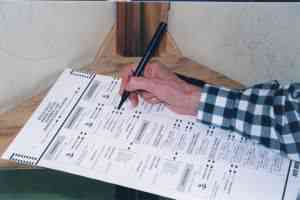 A snippy apology is apparently not what the judges involved in Apple’s U.K. patent litigation over Samsung tablets ordered, according to testy statements made at a U.K. Court of Appeal hearing today.
A snippy apology is apparently not what the judges involved in Apple’s U.K. patent litigation over Samsung tablets ordered, according to testy statements made at a U.K. Court of Appeal hearing today.
Judge Robin Jacob court told Apple and Samsung lawyers this morning that the iPad maker had 24 hours to revise its currently published statement about the verdict in favor of Samsung on Apple’s UK website, replace it with a new one apologizing for inaccuracies, put the link on its home page, and use at least an 11-point font.
The website notice that Apple published last Friday highlighted a lower court judge’s statement that the Samsung tablets involved in the lawsuit “are not as cool” as Apple’s iPad. Apple also piled on a host of earlier judicial platitudes emphasizing that the iPad has “extreme simplicity . . . is striking . . . . It is a cool design.”
The original July 18, 2012 order by Judge Colin Birss of the Patent Court, granted Samsung’s request to require Apple to publish a simple, one-paragraph statement on its website, and in a number of print publications:
“On 9th July 2012 the High Court of Justice of England and Wales ruled that Samsung Electronics (UK) Limited’s Galaxy Tablet computers, namely the Galaxy Tab 10.1, Tab 8.9 and Tab 7.7 do not infringe Apple’s registered design 000181607-0001. A copy of the full judgment of the High Court is available via the following link [insert hyperlink].”
Judge Birss ordered Apple to publish the notice only in the U.K., denying Samsung’s request that Apple publish it on each of the company’s country-specific European websites. He also rejected Samsung’s request that the notice be on Apple’s UK website for a year, concluding that six months was more appropriate. The judge’s rationale was that “this a very fast moving industry and I bear in mind the risk of prejudice to Apple” of a more extended publication requirement.
 After three years, language-learning software company Rosetta Stone settled its trademark lawsuit against Google over the company’s Adwords advertising program. (read the settlement below).
After three years, language-learning software company Rosetta Stone settled its trademark lawsuit against Google over the company’s Adwords advertising program. (read the settlement below).
 Paul Ceglia, the embattled Facebook, Inc.
Paul Ceglia, the embattled Facebook, Inc.  The Sixth Circuit granted Ohio a stay of the district court’s October 26 order granting a preliminary injunction that requires the state to count provisional ballots cast in the wrong polling place due to poll-worker error (wrong-place/wrong-precinct ballots) in the November election. The court previously affirmed an order that Ohio count right-place/wrong-precinct provisional ballots caused by poll-worker error. Plaintiffs failed to show strong likelihood of success on the merits of constitutional claims concerning wrong-place/wrong-precinct ballots. The salient feature of the right-place/ wrong-precinct problem was disenfranchisement, by worker error, of voters who arrive at the correct place, a situation caused by Ohio’s system of multi-precinct polling places. Though voters rely on workers to direct them to the proper precinct in the polling place, they are not as dependent in identifying their correct polling place. Ohio law requires officials to provide notice of where they are eligible to vote; information is easily accessible. There is sparse evidence of workers sending voters to the wrong polling location. The state has a legitimate interest in maintaining its precinct-based voting system; there is a strong public interest that militates against changing the rules during early voting. The injunction would interfere with orderly election administration and cause confusion among poll workers and voters.
The Sixth Circuit granted Ohio a stay of the district court’s October 26 order granting a preliminary injunction that requires the state to count provisional ballots cast in the wrong polling place due to poll-worker error (wrong-place/wrong-precinct ballots) in the November election. The court previously affirmed an order that Ohio count right-place/wrong-precinct provisional ballots caused by poll-worker error. Plaintiffs failed to show strong likelihood of success on the merits of constitutional claims concerning wrong-place/wrong-precinct ballots. The salient feature of the right-place/ wrong-precinct problem was disenfranchisement, by worker error, of voters who arrive at the correct place, a situation caused by Ohio’s system of multi-precinct polling places. Though voters rely on workers to direct them to the proper precinct in the polling place, they are not as dependent in identifying their correct polling place. Ohio law requires officials to provide notice of where they are eligible to vote; information is easily accessible. There is sparse evidence of workers sending voters to the wrong polling location. The state has a legitimate interest in maintaining its precinct-based voting system; there is a strong public interest that militates against changing the rules during early voting. The injunction would interfere with orderly election administration and cause confusion among poll workers and voters. A snippy apology is apparently not what the judges involved in Apple’s U.K. patent litigation over Samsung tablets ordered, according to
A snippy apology is apparently not what the judges involved in Apple’s U.K. patent litigation over Samsung tablets ordered, according to  Last week, on October 26, Kickflip, Inc. (doing business as, and hereinafter referred to as, Gambit)
Last week, on October 26, Kickflip, Inc. (doing business as, and hereinafter referred to as, Gambit)